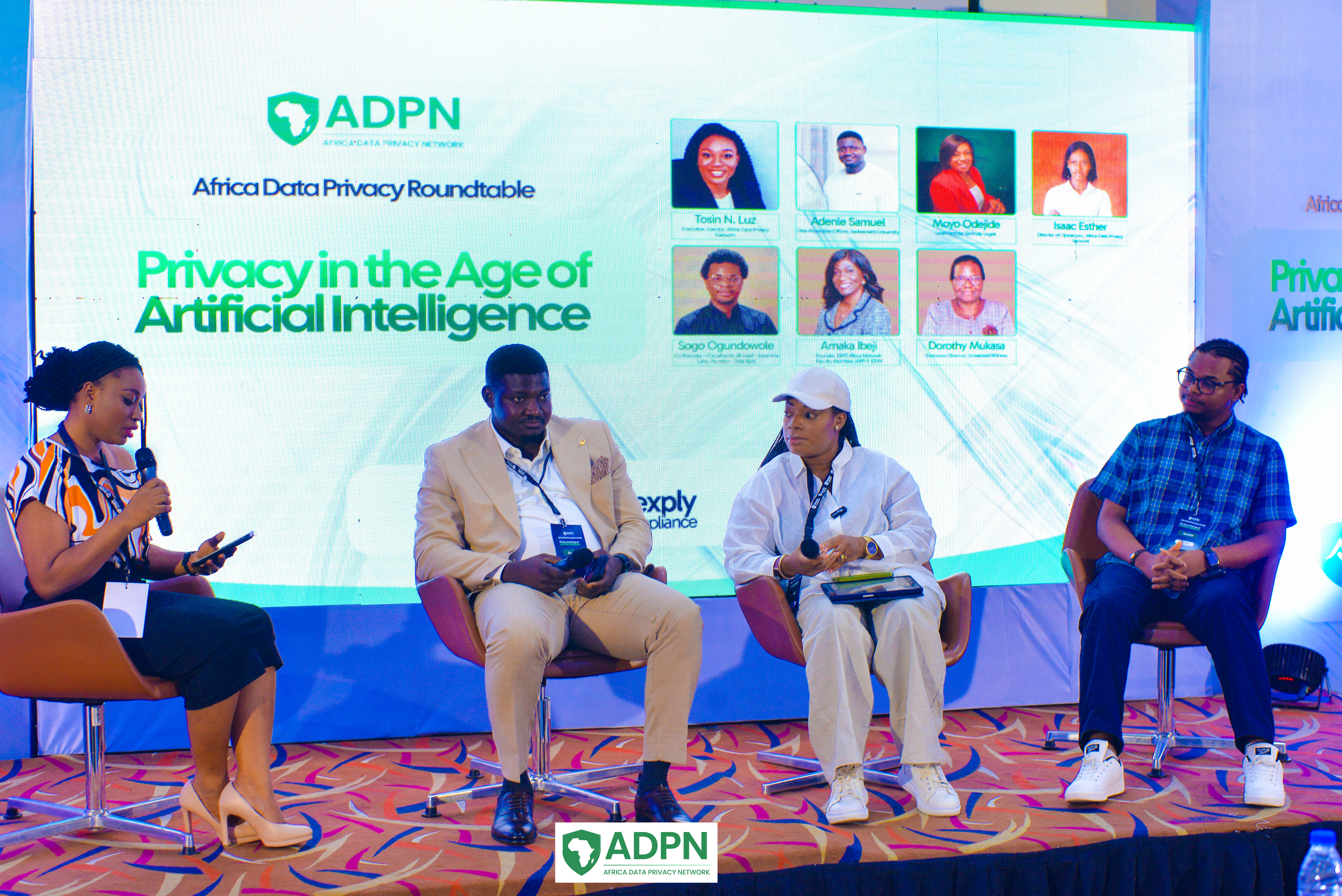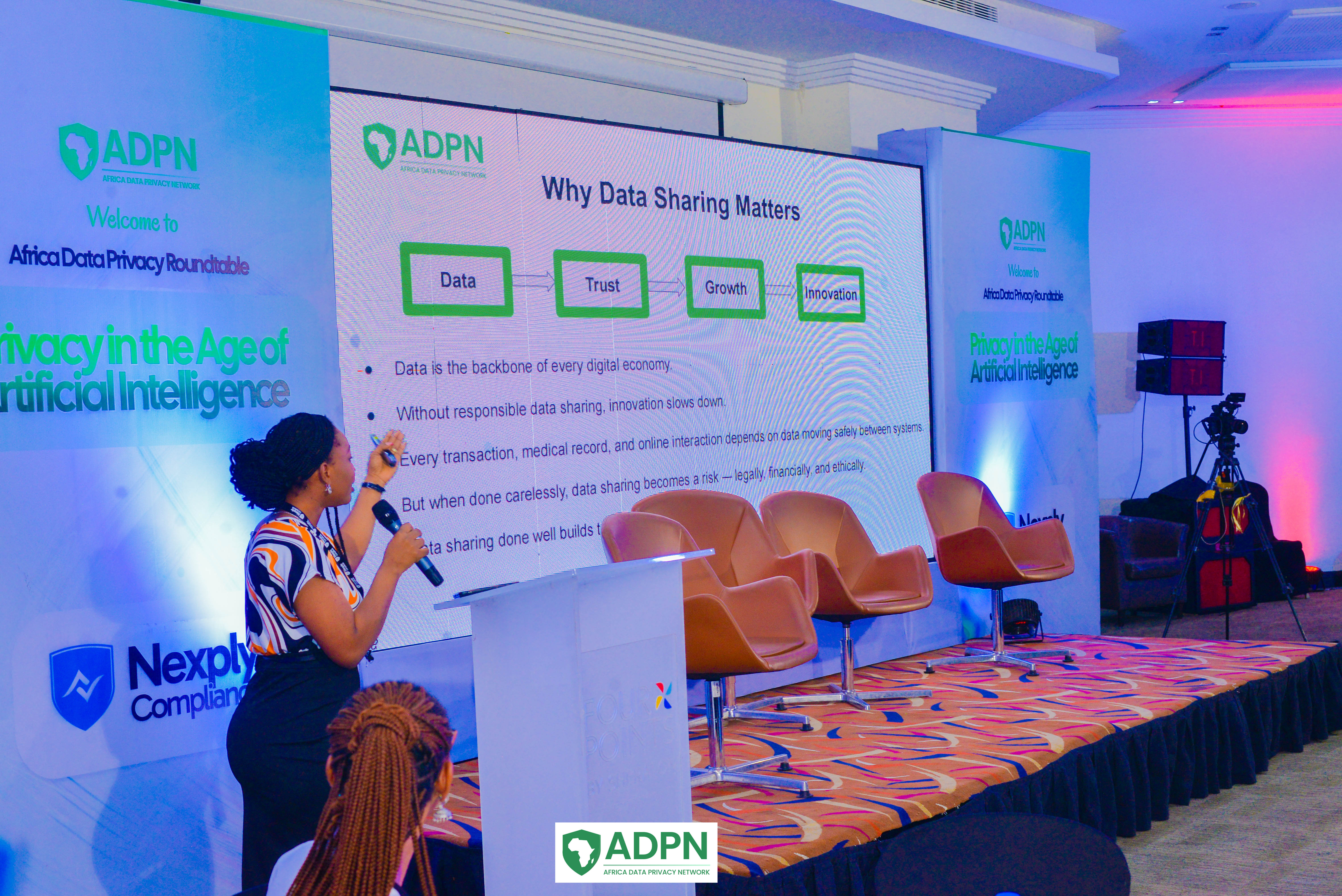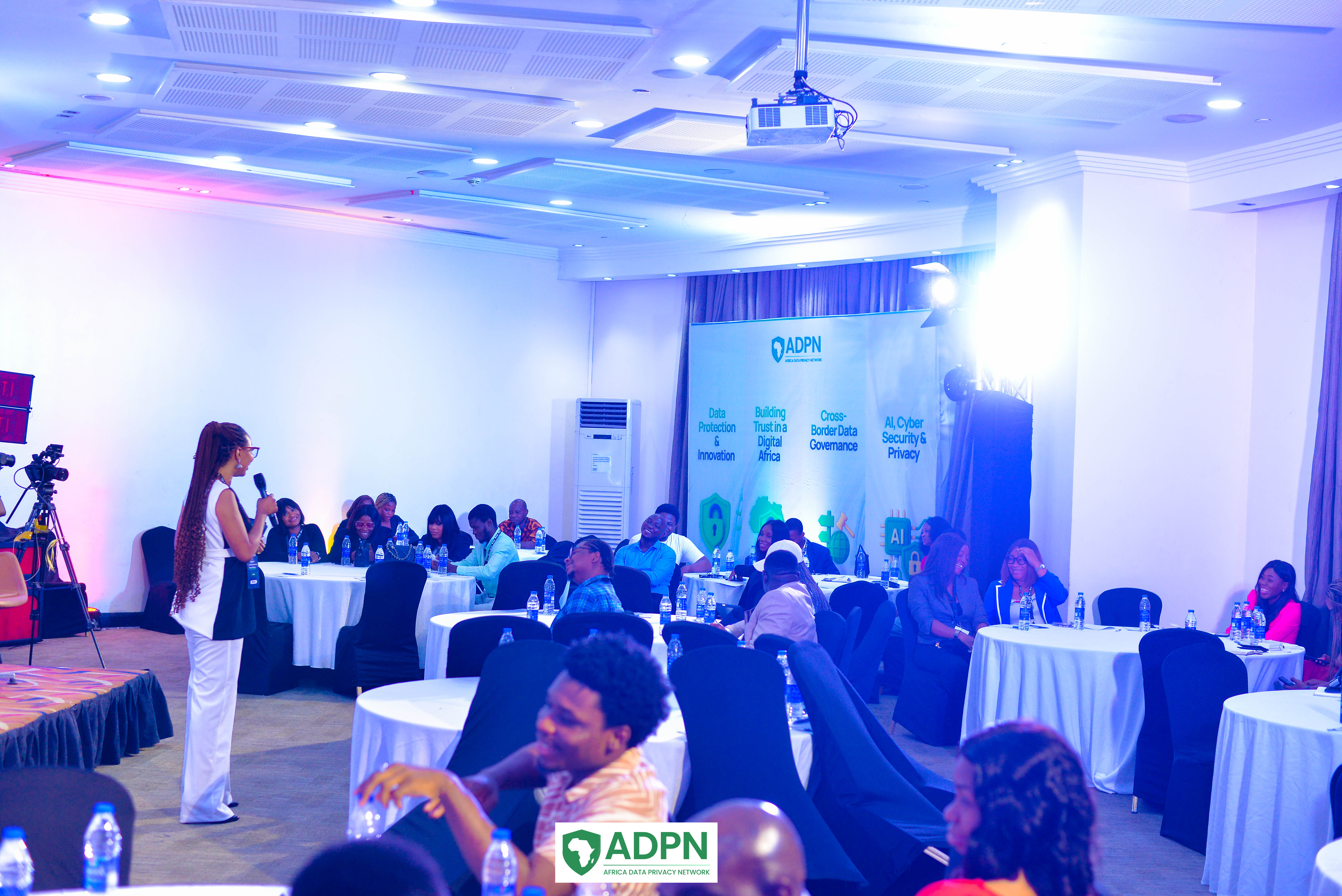







































“AI depends on data, and data depends on trust”- African experts at Data Privacy Roundtable
 AI
AI
 U
U
 UTED
UTED
 CMSN
CMSN
 IDTT
IDTT
The Africa Data Privacy Roundtable began in Lagos on Monday, October 6, with a clear message from organisers and speakers. Africa cannot build a strong digital future without trust, privacy, and responsible innovation.
The event, organised by the Africa Data Privacy Network, brought together data protection officers, legal practitioners, technology entrepreneurs, and AI researchers to examine the theme, Privacy in the Age of Artificial Intelligence.
Across Africa, the growth of artificial intelligence has accelerated the collection and processing of personal data. A 2024 report by the International Telecommunication Union showed that internet penetration in Sub-Saharan Africa has doubled in less than a decade, reaching over 400 million users.
That digital growth has made data protection and privacy a pressing governance issue. Nigeria, one of the continent’s largest digital economies, has also seen an expansion in data flows through fintech, health tech, AI research, and government digital services.

Trust as the foundation of digital transformation
The roundtable began with an address by Isaac Esther, Director of Operations at the Africa Data Privacy Network. She described the gathering as “a meeting of minds, a coalition of change makers, and a collective commitment to shaping the future of Africa’s privacy framework and data protection.”
Esther noted that Africa’s growing digital space cannot thrive without trust between users, businesses, and governments. “AI depends on data, and data depends on trust. Without trust, there can be no innovation that truly serves people,” she said.
She explained that privacy is no longer an abstract concept but “deeply personal, practical, and urgent.”

Nigeria’s data protection efforts have expanded since the establishment of the Nigeria Data Protection Commission in 2023. The Commission says more than 200 organisations have registered as data controllers and processors, while the National Identity Management Commission continues to enrol citizens under the digital ID programme.
However, experts argue that legal frameworks alone are not enough to address privacy challenges. Esther called for a cultural shift in how institutions approach compliance and innovation.
“At ADPN, our mission has always been clear: to build awareness, strengthen capacity, and promote collaboration across sectors so that privacy is not just a policy, but a practice,” she said. “Compliance and innovation are not enemies. They are partners.”
Her remarks set the tone for a day of discussions that moved from policy to practice. A poll during the opening session asked participants whether they trusted human intelligence or artificial intelligence more when it comes to handling their private information.
Most participants said that they trusted humans more, reflecting a broader public unease with AI systems and opaque data practices.
This concern aligns with recent findings by the United Nations Conference on Trade and Development, which showed that less than 30 per cent of African countries have fully implemented data protection laws, even as AI applications increase in financial services, agriculture, education, and governance.
Data privacy in practice
During a masterclass titled Privacy in Practice, Tosin Nathaniel Luz, Executive Director of the Africa Data Privacy Network, engaged participants on how to navigate compliance while fostering innovation.
She said many founders and operators in Africa often see compliance as a regulatory burden rather than a trust-building tool. “Compliance is not a tick-box exercise. It is how we build trust,” she said.
Tosin explained that responsible data sharing is central to sustaining Africa’s digital economy. “Data is actually the new oil. Just as fuel powers your vehicle, data powers the digital world,” she said. “When people can trust you, they can give you money, they can deal with you. Compliance is actually a way of gaining people’s trust.”

Her session focused on how startups, financial institutions, and other businesses can implement privacy by design, ensuring that their operations are built to meet regulatory standards from the start rather than as an afterthought. “The way they say compliance should not stifle innovation, compliance in itself is actually an innovation,” she told participants.
The discussions at the roundtable come at a time when Nigeria and other African countries are under pressure to strengthen their data governance frameworks.
In 2024, Nigeria’s digital economy accounted for more than 18 per cent of its GDP, according to the National Bureau of Statistics. As more transactions move online, privacy breaches have increased, with the National Information Technology Development Agency (NITDA) reporting a steady rise in data breach complaints over the past two years.
Participants at the event included lawyers, technology officers, cybersecurity consultants, and data protection officers from the private and public sectors. Many spoke about the practical realities of compliance in a market where awareness remains low.
Some noted that even basic privacy documents are often ignored by users who click “agree” without reading the terms of service. Others stressed that organisations need to create systems that make privacy protections automatic and easy to understand.

In her closing remarks, Tosin Nathaniel Luz reminded participants that Africa has an opportunity to build its digital future differently from other regions. “Africa can lead the world in demonstrating that responsible innovation is the most sustainable form of progress,” she said.
The roundtable concluded with a call for continuous collaboration between regulators, businesses, and civil society. As AI adoption grows across sectors, participants agreed that privacy must remain a central part of Africa’s digital transformation story.

